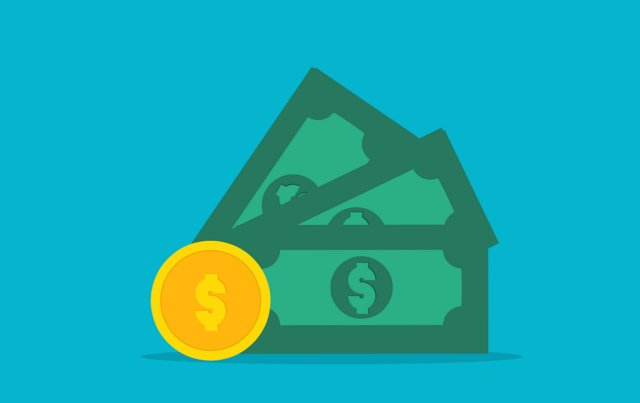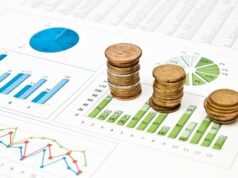Debt is prevalent, whether it’s credit card debt, a personal loan, auto finance college tuition, or a home loan.
The uplifting news is that certain types of debt can have benefits, and it all boils down to three factors:
- Whether you have effective debt management skills
- If the loan has the potential to earn you money
- And whether you are prepared for unexpected events.
In the section below, we’ll go over a few methods you can use to improve your debt-management skills and possibly pay less in the long term.
Stay Aware Of How Much You Owe

The initial step should always be to become aware of the situation. When you first begin your debt management journey, you should learn about the various types of debt that can appear on your balance sheet. It is crucial since certain types of debt can have more negative consequences on your balance sheet. Not all loans are created equal, and determining your whole debt portfolio is essential to a successful debt management approach.
Begin by generating a list of all your ongoing debts, as well as the creditors to whom you owe money, the total amount owed, monthly payments, and the maturity date. You can also collect this information using online banking tools. This list can be consulted at any time, particularly when paying bills. You should not forget to update this list when your debt amount varies from month to month. If you don’t make a list, you will likely forget the amount you owe to the bank.
Check your debt list regularly, especially as you pay invoices. As the total amount of your debt varies, update your list every few months.
Determine Which Debts Should Be Paid Off First
Because credit cards have higher interest rates than other loans, paying them off first is often the wisest choice. Because it costs the most money, the credit card with the highest interest rate is frequently the first to be paid off.
Prioritize and rank your debts in the order you wish to pay them off using your debt list. You can also prioritize paying off the loan with the smallest balance. While it may cost a bit more in the long term, paying off lesser bills early will help you feel more confident.
Use Debt Consolidation

Debt consolidation combines several debts into a single payment, usually high-interest debt like credit card bills. If you can secure a reduced interest rate, debt consolidation may be a viable option for you. It will assist you in reducing your total debt and reorganizing it so that you can pay it off more quickly.
Debt consolidation is a sound technique you may tackle on your own if you’re dealing with a modest quantity of debt and just want to reorganize several bills with varied interest rates, payments, and due dates. You can use CreditAssociates to consolidate your debts, but read its review before deciding anything.
Make Timely Debt Payments

Due to the late fee, overdue payments on bills make it much more challenging to pay off your debt. Take advantage of the power of technology to instill the habit of paying your bills on time. You may set alerts and reminders for your monthly payments on your smartphone.
If you still haven’t made a payment, don’t wait until the next due date to do so. In reality, you should make the required payment as soon as possible. It’s also important to remember that on-time payments are critical for efficient debt management.
While a few late payments may not seem like a big deal to most of us, creating a practice of missing payments can significantly influence your ability to pay in the future, and it will impact your credit score. To ensure that payments are made regularly, you can use your bank’s auto-debit service.
Put Together A Budget
Creating a budget is a key debt management method for getting out of debt in the long run. However, the procedure necessitates a great deal of forethought and patience. Begin by keeping track of your monthly income and expenses.
Once you’ve pinpointed this area, you may start thinking about ways to cut back on your daily expenses, the bulk of which are likely to be wasteful. This money can then be placed aside to pay off the debt, no matter how modest it is. Then you should prioritize your debts to identify which are the most crucial obligations to pay first, such as utilities and mortgage expenses.
While breaking free from the debt cycle takes time, staying focused on your budget and practicing discipline are surefire methods to succeed in this situation. Maintaining a budget ensures that you have the funds to handle all of your essential monthly obligations comfortably.
If you notice that you are falling behind on your payments, begin planning ahead of time so that you can move quickly. As a result, because it puts the extra money to good use, a budget is tremendously beneficial in debt management (to be used to pay off debt faster).
Save More Than You Spend

One of the most significant management principles is to continue to save more. While paying off your debt is a good thing, doing so at the expense of your retirement plans may leave you disappointed. Instead, you can replenish your savings account with sufficient amounts regularly to assist your savings in increasing over time. The better choice is to pay your debts gradually while increasing your savings for the future.
Conclusion

Debt management is an essential component whether you have a business or a job, but it doesn’t have to be a huge problem. There are advantages and disadvantages to getting finance, and the techniques you apply are critical to your financial success. The six tips listed above are a wonderful place to start when it comes to debt management.




